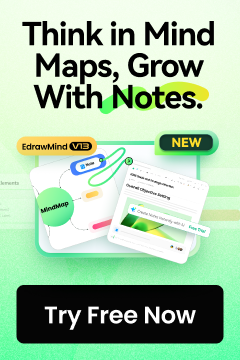The importance of note-taking apps lies in their ability to enhance productivity, foster organization, and adapt to the diverse needs of users. These applications have evolved beyond simple text input, incorporating multimedia elements and advanced search capabilities. As our lives become increasingly interconnected and information-centric, the role of note-taking apps continues to expand, accommodating various work, educational, and personal contexts.
This overview delves into the significance and evolution of note-taking applications, showcasing how these tools have transformed from basic digital notebooks to sophisticated platforms that cater to the demands of modern users. Explore the journey of best note-taking applications and discover how they have become indispensable companions in our quest for efficient information management.
In this article
Benefits of Note-Taking Applications
As we navigate the intricacies of work, education, and daily life, note-taking applications emerge as invaluable companions, providing many benefits beyond traditional pen-and-paper methods. Here are the key benefits of incorporating the best note-taking applications into your routine, revolutionizing how you capture, organize, and utilize information.
Enhanced Organization
Note-taking applications provide a systematic and organized way to store information. Users can categorize notes into folders, tags, or notebooks, making it easy to locate and retrieve specific information when needed.
Accessibility and Synchronization
These applications often offer cloud-based storage, enabling users to access their notes from multiple devices. Synchronization ensures that your notes are up-to-date and readily available, whether using a computer, tablet, or smartphone.
Multimedia Integration
Modern note-taking apps go beyond text and allow users to incorporate multimedia elements such as images, audio recordings, and sketches. This multimedia integration enhances the richness and context of notes.
Search and Retrieval Efficiency
Robust search functionalities enable users to find specific notes quickly. Advanced search algorithms, tags, and keywords make locating relevant information within a vast repository of notes effortless.
Collaboration and Sharing
Many note-taking applications facilitate collaboration by allowing users to share notes with colleagues or friends. Real-time collaboration features enhance teamwork, enabling multiple users to work on and edit notes simultaneously.
8 Best Note-Taking Applications
Choosing the right one can significantly impact your productivity and organization in the vast landscape of note-taking applications. Here's a curated list of the top 8 best note-taking applications, each offering unique features and capabilities.
Notion

The notion is an all-in-one workspace that blends note-taking, project management, and collaboration. Its versatility allows users to create databases, wikis, and kanban boards alongside traditional notes.
Key Features: Rich multimedia support, database integration, collaborative editing, and a flexible workspace structure.
Evernote

Evernote is a veteran in the note-taking realm, offering a feature-rich platform for capturing and organizing information. It excels in multimedia integration, enabling users to create comprehensive notes.
Key Features: Web clipping, multimedia support, powerful search functionality, and seamless synchronization across devices.
Microsoft OneNote

OneNote is Microsoft's digital note-taking application, designed for users seeking a flexible canvas to capture ideas. It integrates seamlessly with the Microsoft Office suite and provides a freeform note-taking experience.
Key Features: Freeform canvas, integration with Microsoft Office, collaborative editing, and cross-platform compatibility.
Google Keep

Google Keep is a straightforward, user-friendly note-taking app that integrates seamlessly with the Google ecosystem. It focuses on simplicity and quick note capture.
Key Features: Color-coded notes, checklists, voice memos, and synchronization with Google Drive.
Simplenote

As the name suggests, Simplenote offers a minimalist note-taking experience focusing on speed and simplicity. It's ideal for users who prefer a clean and straightforward interface.
Key Features: Plain text notes, quick synchronization, version history, and efficient tagging.
Bear

Bear is a note-taking app designed for Apple users who appreciate a beautiful and intuitive interface. It balances simplicity and powerful features, making it a favorite among creative professionals.
Key Features: Markdown support, beautiful design, powerful search, and organization using tags.
Zoho Notebook

Zoho Notebook is a versatile note-taking app offering a range of multimedia-rich features. It emphasizes visual organization, allowing users to create notebooks with different covers for distinct topics.
Key Features: Multimedia support, visual organization, collaborative features, and customizable covers for notebooks.
Apple Notes

Apple Notes comes pre-installed on Apple devices and has evolved into a robust note-taking application. It offers a clean interface and seamless integration with other Apple apps.
Key Features: Sketching, document scanning, collaboration with iCloud, and integration with Siri.
Integrating Note-Taking Apps with EdrawMind
Note-taking apps offer a range of features, from multimedia integration to cross-device synchronization, making them indispensable tools for students, professionals, and anyone looking to manage information effectively. However, to further enhance the utility of and make it the best note-taking applications, integrating them with a tool like EdrawMind can be a game-changer.
As an advanced mind-mapping tool, EdrawMind complements traditional note-taking apps by visually representing ideas and concepts. It allows users to structure information more engaging and comprehensively, making it easier to identify relationships and hierarchies within notes.
How to use EdrawMind to Organize Research Notes with Note-Taking Apps
Using EdrawMind with your favorite best note-taking applications can revolutionize how you organize and manage your research notes. Here’s a step-by-step guide on how to effectively use EdrawMind for this purpose:
1. Gather Your Notes

Begin by compiling all your research notes from note-taking applications. Ensure that all the necessary information is up-to-date and easily accessible.
2. Organize Notes into Mind Maps

Start structuring your notes into mind maps. Create a central node for your main topic or research question. Branch out from the central node to different sub-topics or related areas of your research.
3. Enhance with Visual Elements

Utilize EdrawMind’s features to add colors, icons, and images to your mind map. This not only makes your mind map more visually appealing but also aids in differentiating between various elements.
4. Review and Save

Review your mind map to ensure it remains accurate and relevant. After completing the review, save your mind map to preserve the changes.
By integrating EdrawMind with your chosen note-taking applications, you unlock a powerful synergy that combines the strengths of linear note-taking with the visual clarity of mind mapping. This integration catalyzes improved organization, enhanced creativity, and heightened research and information management productivity.
Conclusion
Note-taking apps have become indispensable tools, offering enhanced organization, collaboration, and accessibility. Top applications like Notion, Evernote, and Google Keep provide diverse features catering to various needs. To further boost your productivity, consider exploring EdrawMind.
This visual tool seamlessly integrates with best note-taking applications, offering a dynamic approach to organization and creativity. Embrace this powerful combination to streamline your workflow and unlock new levels of efficiency in managing information. Elevate your productivity by leveraging the strengths of note-taking apps alongside the visual prowess of EdrawMind.






